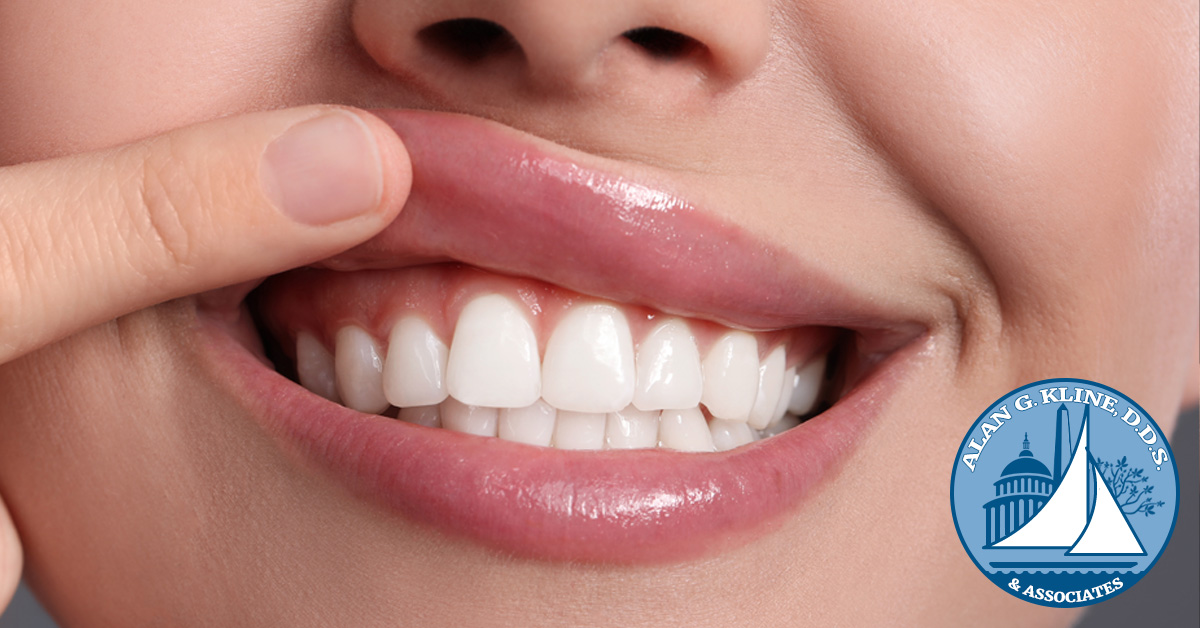
Are you worried about your gums receding? When considering oral hygiene, you might first consider your teeth, but healthy gums are equally important. In fact, you should be monitoring the health of your gums even more than your teeth since gum tissue does not regenerate once it’s lost. We can replace teeth and fill cavities, but gum tissue is the precious foundation on which we build excellent oral health.
What are Receding Gums?
Sometimes our gums can recede or pull back away from the tooth. This exposes the tooth and possibly even the tooth’s root. When the gum falls away from the tooth, it creates a space, opening the door to let bacteria in to cause damage.
This exposure can lead to permanent damage and, eventually, tooth loss. So, knowing what symptoms to look out for in your mouth is essential.
Symptoms of Receding Gums
The difficult aspect of spotting receding gums is that they don’t recede overnight—it is a gradual development that might slip under your radar if you’re not paying attention.
If you have receding gums, you might experience tooth sensitivity or notice a tooth looks longer than others. Sometimes you can feel a bump near the gum line or see your gums pulling away from the tooth. If your gums are bleeding or swollen or your breath often smells bad, even after brushing, this could be the beginning of receding gums.
Although these symptoms don’t automatically point to receding gums, you must visit your dentist to determine the issue.
Causes of Receding Gums
Gums can begin to recede if you expose them to continual stress. This can happen by:
- Brushing your teeth too aggressively
- Not brushing every day
- Enduring injury or trauma to your gum tissue
- Smoking or chewing tobacco
- Grinding your teeth
Cures for Receding Gums
If your gums have receded, you cannot regenerate them, but you can stop the process from advancing further. The best way to do this is through a deep cleaning where the dentist removes plaque and tartar built up on the teeth and root surfaces below the gum line. A dentist might also prescribe antibiotics to eliminate any remaining harmful bacteria.
However, you might need gum surgery if your receding gums have created extensive damage. Your dentist folds back the affected receding gum tissue, removes the harmful bacteria, and then pulls the gum tissue back in place over the tooth’s root.
The Best Cure: Prevention
If having your gums pulled back, scrubbed, and pulled back into place doesn’t sound ideal, let’s focus on prevention instead.
Pay attention to your daily oral hygiene. Brush gently for two minutes, two times a day, and floss daily. We know people want to shortchange this last step, but it is especially important for healthy gums. Tobacco products irritate gums. We can appreciate quitting tobacco is much easier said than done, but doing so will lead to healthier gums.
Cut back on sugar that can increase bacteria in your mouth and adversely affect gums. Increase your intake of healthy foods such as leafy greens, green tea, and foods high in calcium. Foods such as these help keep your mouth clean and arm your body with antioxidants that fight inflammation in your gums.
Visit Your Dentist
Please don’t wait until you have issues to make an appointment with us. Come for two cleanings each year, and communicate any problems or concerns you have so we can monitor your oral health together. When you prioritize oral hygiene, incorporate healthy daily habits, and visit our office, you can avoid receding gums and other preventable dental issues.